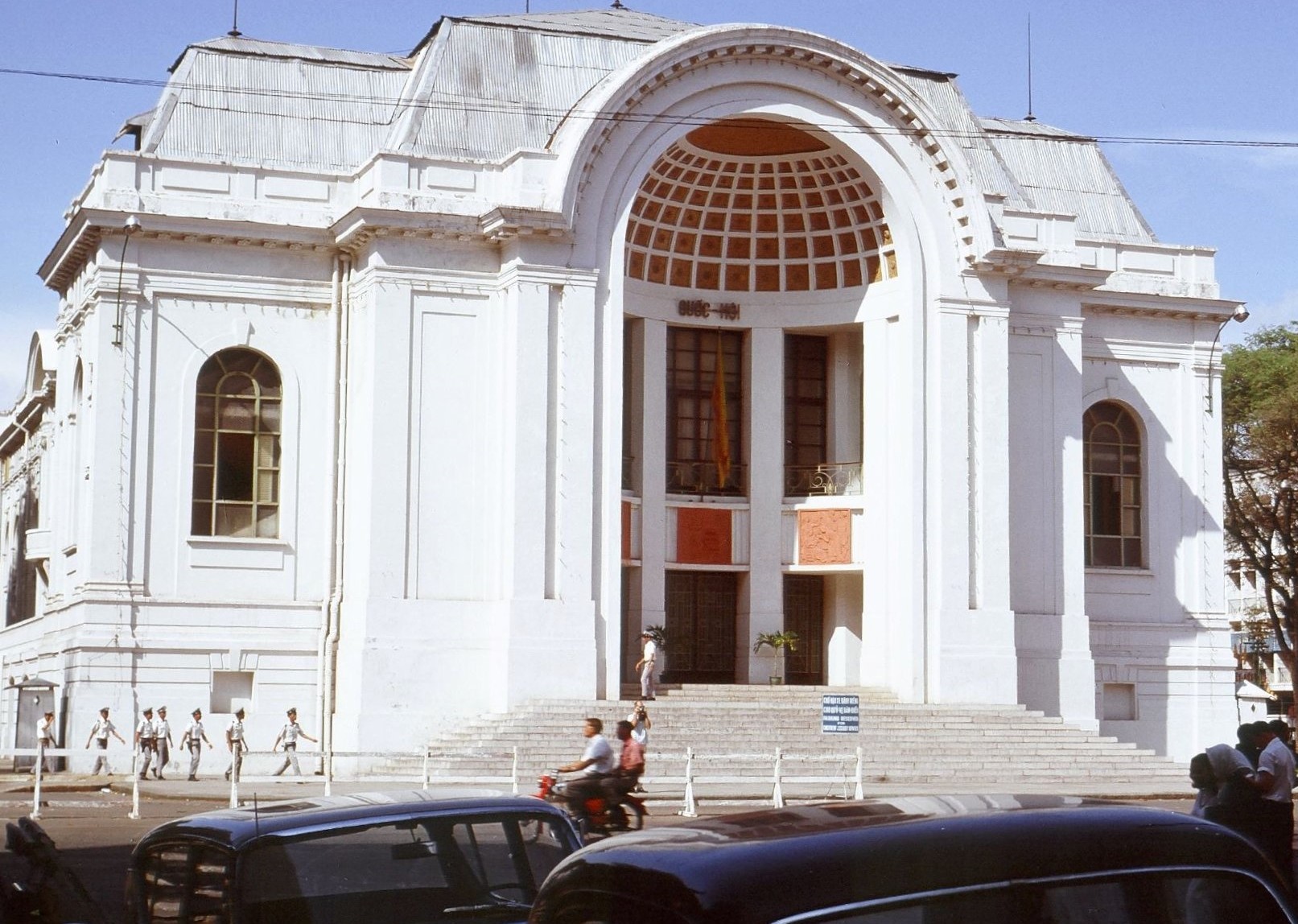Tai Van Ta, Harvard Law School
May 2007
Democracy in action: The 1970 Senatorial elections in the Republic of Vietnam (Part 1, Part 2, Part 3, Part 4, Part 5)
ABSTRACT
Prefacing and ending with brief summaries of the political history of South Vietnam (1954-75), this paper focuses on the 1970 Senatorial elections, studied through a pre-election poll and an exit poll of 875 voters in the capital city of Saigon (probably the only political poll, during that period, conducted independently by a non-governmental group of researchers under the guidance of a professor of social science research methods). The analysis of the results of the polls show that (1) Even the population sample is not idealistically a stratified random sample of the whole nationwide population, the study can predict correctly the outcome with the three victorious slates of candidates, although with a slight difference in ranking.; (2) that the mass followings of the two dominant religious forces, the Catholics and the Buddhists, and their prominent personalities, were the factors in their slates’ respective victories, with the ‘third force’ Buddhists being the strongest political force in society and the number one victor in the elections, even they were anti-government and ran against a government-supported slate of candidates; this latter, even with the full force of government help, came second to the Buddhist slate, and the interviewed voters said they voted for the Buddhist slate because besides its religious (Buddhist) representativeness , the voters wanted peace represented by the Buddhists’ position; and that (3) the Buddhists were victorious despite the fact that they did not use so much the campaign means (interviews in the press, posters and banderoles) as the other slates, and despite that they were heavily criticized in many articles in the newspapers, but they fiercely condemned the government.
It is interesting to note that this free and fair election, encouraged by US Ambassador Bunker, was the climactic development of democracy in South Vietnam, which incipient democracy, unfortunately, was to be killed—even before the Communist troops overran South Vietnam in 1975–by President Nguyen Van Thieu just one year later, in 1971, when he ran a one-man show of presidential elections.
After the Geneva Conference divided Vietnam (supposedly only temporarily) into two parts in mid-1954 and during the 20-year existence (1955-1975) of the Republic of Vietnam (or South Vietnam), supported diplomatically and economically by the United States, there were two periods of political development in South Vietnam with different degrees of American influence.
The First Republic was declared in 1955 when Prime Minister Ngo Dinh Diem overthrew Chief of State/ex-Emperor Bao Dai (who was in France) in a referendum, with the approval of more than 90% voters. In 1956, a Constitution was promulgated which vested executive power in the President and legislative power the National Assembly, but there was no independent judiciary because all judges, including those in the Highest Court, called Court of Cassation – in the French tradition– were appointed by the President and managed by the Ministry of Justice. While the United States provided economic aid and advice in police and administrative reform (through the Michigan State University group), the US military aid program up until president Johnson’s days were mainly advisory (through the MAAG-V, or Military Assistance Advisory Group-Vietnam) (President Diem resisted the importation of American combat troops into Vietnam) and the Americans left much of the internal political development to the Ngo brothers, the President and his political advisor Ngo Dinh Nhu, who fought and won over the armies of the Binh Xuyen sect and the religious sects of Cao Dai and Hoa Hao, then eliminated a number of other nationalist leaders from the scene and tried to establish a strong man regime–without much American prodding toward a more genuine democracy—probably because of American priority in fighting Asian Communism with strong men (the same policy was pursued in South Korea, for example). It was in this context that one of the two only opposition candidates for the National Assembly in 1959, Dr. Phan Quang Dan, who was elected from District 2 of the Capital of Saigon, with the nationally largest number of votes of about 35,000, in a victory over Mr. Pham Van Thung of the government Can Lao Party (with only about 5,000 votes, even including the votes of all the presidential guards and a paratroop unit brought into the Capital by the government ), was not permitted to sit in the Assembly. On the opening day of the Assembly, Dr. Dan was stopped by the police at Cau Bong Bridge by the Gia Dinh Province police and “invited” to the police station by its Chief for a talk. Only after Dr. Dan was detained would President Diem go to the National Assembly to open the session of the New Assembly. During the electoral campaign, the Can Lao party used government trucks to transport supporters for its candidate to meetings and to gather and destroy leaflets distributed by Dr.Dan’s campaign, to take down Dr. Dan’s posters at night time and to come and smash the headquarters of Thoi Luan Newspaper for which Dr. Dan was the editor. Later, a court nullified Dr. Dan’s victory on the pretext that he committed electoral fraud by “bribing” the voters with free medical service. Can Lao party candidate Mr. Thung was declared the winner. Other opposition leaders who could not use the loyal opposition strategy in the National Assembly established the Caravelle Group in 1960. As for Dr. Dan, the pioneer in democratic development in South Vietnam, he was later imprisoned on Con Dao island for participating in a failing military coup d’etat of the paratroopers on November 11, 1960 (Details provided by US Immigration Court Judge Phan Quang Tue, son of Dr.Phan Quang Dan). Vis-à-vis North Vietnam, President Diem had previously stopped negotiations on holding national elections over the whole country for national reunification, provided for by the 1954 Geneva Accord, and therefore, also in this year of 1960, the Communists established the National Front for Liberation of the South (Mat Tran Giai Phong Mien Nam).
In 1961, “the National Assembly had surrendered its power to the Executive, and Ngo Dinh Diem became a dictator”, in the words of a 1968 study of the US Agency for International Development, Saigon Vietnam (THE CONSTITUTION OF 1 APRIL 1967 AND ANALYSIS, at p.2 ). The Ngo brothers continued their nepotism regime until it was overthrown by the military in November 1963 in the wake of the government suppression of the rights of freedom of religion of the Buddhists (such as hanging Buddhist flags) who revolted in street demonstrations and self-immolations. Although President Kennedy declared on national television that a change in personnel in Saigon might be necessary for continuing the war effort against the Communists (meaning the departure of brother Nhu), he was astounded when informed that President Diem was killed in the coup, and Ambassador Frederick Nolting (the predecessor of Henry Cabot Lodge) was strongly supportive of President Diem, and we cannot assess accurately the degree of American influence or encouragement in this 1963 coup (through the CIA, at the operational level of contact with the Vietnamese generals). The point being made here is: the American effort at exerting influence on Vietnamese political development at this stage was still minimum.
The above minimal political intervention policy of the Americans prior to 1964 was changed to more active American pressure on the Vietnamese toward political accountability and democracy in the second Republic of (South) Vietnam, which started from the 1966 National Constituent Assembly which drafted and promulgated the April 1, 1967, Constitution. Indeed, during the military regimes that quickly succeeded one another in coups and countercoups from November 1963/beginning 1964 to the 1967 Constitution (intermittent with a short civilian government in 1964), Ambassador Maxwell Taylor gave the Vietnamese generals a dressing down when they talked about the coup.
In June 1965, the civilian leaders, due to an agreement between Chief of State Phan Khac Suu and Prime Minister Phan Huy Quat, turned the power to the military. South Vietnam lived under the Provisional Charter (Hien Uoc Tam Thoi) with a military government with two governing institutions: Committee for National Leadership (Uy Ban lanh Dao Quoc Gia), consisting of the junta headed by General Nguyen Van Thieu, and The Central Executive Committee (Uy Ban Hanh Phap Trung Uong), i. e. the cabinet, that ran the executive branch. After many demands for re-civilianizations by many groups, especially the strong demands of the Buddhists, the military government had a political consultative conference and then organized the election of a National Constituent Assembly on September 1, 1966, which then drafted a new Constitution, proclaimed on April 1, 1967.
Within this Vietnamese context, when Ambassador Ellsworth Bunker came to Vietnam in 1967– for his tour of duty until 1973–he immediately showed interest in the Asia Foundation’s program of helping strengthen the new constitutional government, legal reform, court modernization and upgrading of the civil service.. Ambassador Bunker’s approach was more diplomatic and more respectful of the Vietnamese sensibilities, but, as Dr. Douglas Pike, the late and beloved Director of the Vietnam Center at Texas Tech University, wrote in his Introduction to the BUNKER’S PAPERS: REPORTS TO THE PRESIDENT FROM VIETNAM,1967-1973 (Institute of East Asian Studies, University of California/Berkeley,1990), “ as evident throughout, Bunker held an unshakable faith in what he was doing, a firm belief that good, representative government was the only barrier against the encroachments of those South Vietnamese of narrow interest seeking to protect their own political fiefdoms, just as he regarded democratic self-determination as the only enduring safeguard against the tyranny of collectivism. He recognized the great educational value of the franchise and constantly urged the Saigon leadership to trust the people with the gravest questions as a means of educating them in civic values” (at p. xv).
Dr. Pike further described Ambassador Bunker’s work for promoting democracy in Vietnam: “The focus of activity, for Bunker, in particular, was to be on domestic Vietnamese matters, the war being a steadily diminishing factor. It seemed possible, and such was the American expectation, that South Vietnam would move from a military directorate to constitutional government, that Generals Nguyen Cao Ky and Nguyen Van Thieu would be succeeded by a civilian government chosen through universal franchise and centered on a National Assembly. There was no precedent for this in Vietnam’s history”.
“Bunker was seen as history’s instrument in this process. He was to advise and assist, nudge and cajole, this new governing system into existence. What Vietnam required was the formation of modern political parties …What was also required was building modern institutions of government—the National Assembly above all, served by a competent bureaucracy—but also a political communication system to link the center with the province, the district, and most importantly, with the villages of Vietnam, where lived eighty percent of all Vietnamese. To these ends he dedicated himself”
“Bunker’s greatest contribution—which tragically came to naught in the end—was in helping to build this South Vietnam “second republic”, the government that followed Ngo Dinh Diem. Enormous institutional progress was made in this effort, amply demonstrated and conveyed in these cables.”
Unlike the Bush administration which, in the October 2005 National Intelligence Strategy of the US, proclaimed that “to bolster the growth of democracy….the [US] Intelligence Community… must support diplomatic and military efforts (including pre- and post-conflict) when intervention is necessary”, Bunker at that time, Dr. Pike pointed out, “suffered none of the arrogance of power that tended to characterize some American officials. ‘In large part,’ he wrote in cable four, ‘the job must be done by the Vietnamese themselves’, a theme repeated throughout the subsequent cables”
“Certainly his account here puts to rest any lingering notion historians might have that Saigon was a mere American puppet, reflexibly obeying orders handed down from the embassy or from Washington”. The reportage here makes clear just how much progress was achieved” (pp.xiv-xv)
South Vietnam’s 1967 Constitution guaranteed citizens’ fundamental rights, in the same manner as the American Bill of Rights. It copied the American system of checks and balances between the three branches of government, with this difference: it sets up a mixed presidential-parliamentary regime Separation of powers was recognized between the legislative, executive, and judicial. The legislature has two chambers, as in the United States, and unlike the Ngo Dinh Diem regime: the Lower House, with representatives serving a 4-year term, and the Senate, with 60 Senators serving a 6-year term (but one half or 30 Senators to be elected every three years). The Supreme Court was independent from the other branches, with judicial review power, like in the US, and differently from the Court of Cassation under Ngo Dinh Diem (However, the appointment of the 9 to 15 justices were from three lists of 30 nominees from the judiciary, the prosecution, and the bar association.). Lower court judges were under the management of the Supreme Court. The parliamentary aspect of the regime meant that the National Assembly had the right to summon the prime minister and other government officials to testify and answer questions, and can pass a vote of no-confidence against the government by a 2/3 majority vote, and then if the president vetoes such resolution, can override him by a ¾ majority vote. The Constitution recognized political parties and the formation of political opposition.
Within the above constitutional framework, the first elections were carried out in 1967 for the Lower House and the Senate, and the President and Vice President, with many contestants in a free for all election process. The elections, a kind of “let a hundred flowers bloom” situation, were held under the scrutiny of international observers, and particularly the American dominant presence. The military junta, freshly recovering from another Buddhist protest in 1966 for democracy in Central Vietnam , had difficulty at first of reconciling the presidential ambitions of both Chairman Nguyen Van Thieu and Prime Minister Nguyen Cao Ky whose position was strengthened vis-à-vis Thieu after his show of determined strongman’s approach in suppressing the Buddhists through a military campaign in Central Vietnam . But facing the other civilian candidates for the Presidency and Vice Presidency in a contested election, and fearing they would lose in a fair election, the junta generals forced them to join in one slate with Thieu as Presidential candidate and Ky as his Vice-presidential running mate. This worry on the part of the military showed that they did not dare to run a rigged election, and to avoid defeat, the military decided to have only one slate of candidates for the executive branch. And they won, after heavy campaigning among all sections of society, especially within the armed forces, with such motto as “an cay nao rao cay ay” (you should take care of the tree that gives you fruit), meaning the military men should vote for Thieu and Ky.
When the 1970 election of half of the Senate came, the political process in Vietnam seemed to be destined to be mature and fair, and therefore, the great masses of the Buddhists—wounded in the 1966 suppression– decided to abandon their election boycott strategy of 1967 and to launch a full-scale, nation-wide campaign for the Senate. The Buddhists were encouraged by the American officers in the political section of the US Embassy to join the game of democracy, in order not to miss the boat of democratic government and become part of the ruling class. I know it for a fact, because my brother-in-law Bui Tuong Huan, close to Monk Tri Quang—the monk whom the Time Magazine cover article in 1963 dubbed “The Man Who Shook America”(for leading the Buddhist protest then)– was one of the Buddhist leaders who was thus encouraged by the Americans, and I knew that Huan was pleading with another man to head the Buddhist slate of candidates: Law Professor Vu Van Mau, also known to me as my former professor and colleague at the Saigon Law School, and nationally renowned for the shaving of his head in 1963 to protest the Diem regime’s suppression of the Buddhists in that year and resigning his position as Foreign Minister of President Diem. At this juncture in 1970, the game of democracy had the full participation of all population strata and political forces in South Vietnam., including the Buddhists, the only force with the great masses that had up to that time stayed on the sideline (while other forces such as the Catholics, the other religions and the political parties already participated since 1967). That is why I choose this 1970 SENATORIAL ELECTION as a case study of DEMOCRACY IN ACTION in South Vietnam.
* The author of this study thanks his students M.T.Cuong, N.V.Chinh, N.H.Duc, V.T.Dat, C.D.Phuc V.Tan, N.V.Tung, N.X.Thang, N.V.Trung, N.V.Vinh, N.H.Y, who helped to interview the voters, and his colleagues’ professors Diep Xuan Tan and Le Cong Truyen for analyzing part of the data, and especially professor Nguyen Van Bong, Chairman of the Association for Administrative Research who had encouraged and financed this project.
The author dedicates this study to the memory of the two leaders in the victorious Hoa Sen (Lotus) Slate of Candidates in the 1970 Senatorial Elections: The head of the slate, Professor Vu Van Mau, former Saigon Law School Dean and professor of the author, and later the author’s colleague in the same school, and Dr. Bui Tuong Huan, Saigon Law School professor and President of Hue University.
Democracy in action: The 1970 Senatorial elections in the Republic of Vietnam (Part 1, Part 2, Part 3, Part 4, Part 5)

 Politics & Economy3 years ago
Politics & Economy3 years ago
 Society & Culture4 years ago
Society & Culture4 years ago
 Politics & Economy3 years ago
Politics & Economy3 years ago
 Politics & Economy4 years ago
Politics & Economy4 years ago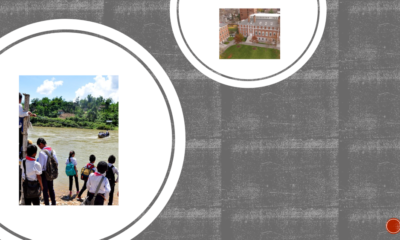
 Politics & Economy3 years ago
Politics & Economy3 years ago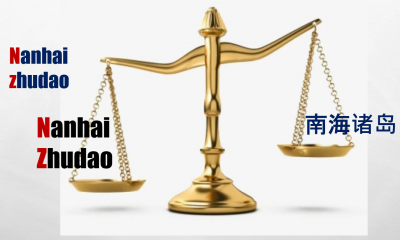
 Politics & Economy4 years ago
Politics & Economy4 years ago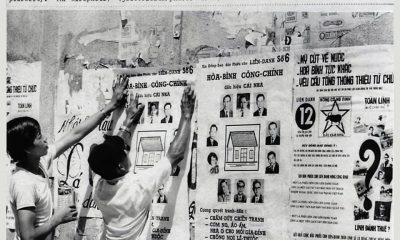
 ARCHIVES3 years ago
ARCHIVES3 years ago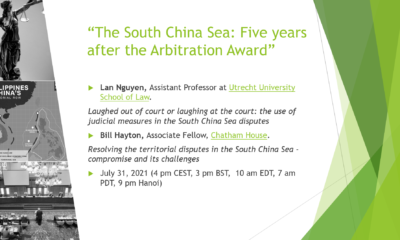
 Politics & Economy3 years ago
Politics & Economy3 years ago
